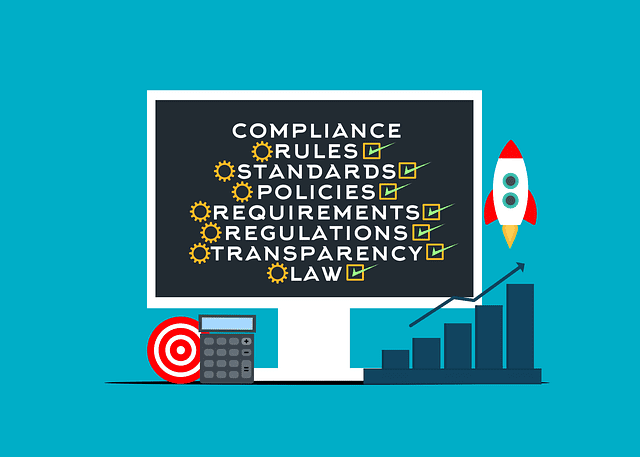The ACC Legal Industry Trends 2025 Corporate Law Department Report: Efficiency, ESG, and the Evolving GC Role
The legal profession continues to see huge changes, as does the role of General Counsels (GCs). No longer confined to traditional legal work, today’s in-house departments are central to driving effectiveness, managing risks, enhancing efficiency and enabling business growth, all while providing expert counsel. For a broader look at what’s shaping the legal landscape this year, see our latest Legal Industry Trends 2025 summary.
The ACC’s 2025 Corporate Law Department report highlights that defining and demonstrating value has become a pivotal focus for legal teams. GCs are stepping up as genuine business partners, working closely with other business units, integrating technology and adopting data-driven decision-making. In-house legal departments must be strategic, collaborative and proactive, showing clearly how their work helps the business every step of the way.
Cost savings and efficiency in legal departments
Amid rising costs and economic pressures, executive leaders and GCs are centering efforts around efficiency. One-third of corporate C-Suite leaders cited improved operational efficiency as a key strategic goal, while 20% are determined to facilitate cost reduction.
A prime focus is on capturing the best value for money from outside counsel. Law firm billing rates have been climbing aggressively. The average worked rate charged by a law firm grew by 6.5%, continuing a strong trend with three years of sharp rises. It is therefore unsurprising that many GCs are turning to their in-house staff; 42% predict an increase in legal work allocated internally.
Some legal teams using alternative legal service providers (ALSPs) are reallocating budgets away from traditional law firms. One-third plan to lower traditional spend, and a quarter expect to increase their ALSP investments.
For those planning to bring more work in-house, rising demands and capacity could quickly cause problems. In an effort to combat these issues, legal leaders are looking to technology. Greater efficiency is a key driver of tech spend for 67% of GC. This way, internal capacity expands without increasing headcount or hours worked. Legal technology can help streamline workflows, improve quality and free up time for higher-value work.
Define value and enable growth
Defining and demonstrating value is now a central priority for GCs; they highlighted its rising prominence within legal departments, mentioning the term “value” three times more in interviews than the previous year. But the ACC report emphasized that value can easily become a buzzword if not defined clearly.
GCs must decide what value means to them. That way, internal stakeholders have a clear picture of legal’s contribution to business goals, team members know what objectives to aim for and external providers know the expectations and outcomes required.
Reporting that their contributions to business growth are often underappreciated by executive leadership, GCs must have a clear understanding of the wider business goals, as well as what could stand in their way. Macro influences like artificial intelligence and ESG initiatives require strategic legal advice to enable growth safely. The shift is from being the “Department of No” to the “Department of How”, solving strategic business problems and unlocking new opportunities.
ESG in legal operations
Given the rise in new regulations, regulatory work is a fast-growing area for in-house legal resources. It has the strongest and widest positive spend across almost every sector, demonstrating just how much investment GCs feel will be necessary to keep up.
ESG (Environmental, Social, and Governance) has become a top concern for in-house counsel, with 49% deeming it a high or transformational corporate macro influence. It comes as regulations surrounding climate, anti-greenwashing and transparency requirements have boomed.
Executive leadership and board members are prioritizing ESG initiatives in their definition of business success. And collaborating across other business departments, including strategy, finance and HR, teams are working to bring ESG goals into core risk management and operational processes.
Rules are rapidly changing, and in-house legal teams must implement compliance frameworks and ensure the company’s actions hold up to public and investor scrutiny.
Evolving expertise
As business needs grow more complex, modern legal teams are recruiting for broader skillsets. Legal leaders are looking for human skills. Adaptability, enthusiasm for new tech, problem-solving and emotional intelligence were pinpointed as desirable attributes in new hires, who will need to meet the evolving expectations of their clients.
To ensure future effectiveness, GCs are building their teams around the changing reality of legal work and business operations. In anticipation of an increasingly AI-led work environment, 93% of corporate counsel leaders believe new roles such as artificial intelligence specialists, developers and implementation managers/directors will be created in legal departments.
In many cases, these new roles will sit within the legal operations team. This legal function is becoming a necessity, with team members often bringing knowledge in areas like strategy, new technology, data analysis and change management. Legal ops professionals help GCs make informed decisions backed by data and meaningful insights.
General counsel as business partners
The role of GCs and Chief Legal Officers is rapidly expanding. They’re expected not just to serve as legal advisors but to be true business partners. The report notes an increasing importance for attorneys to gain a deep understanding of the business: its needs, goals, markets and challenges, and then deliver practical, forward-looking guidance that helps the company move forward.
With their workload including everything from managing risk and corporate governance to ESG initiatives and legal technology, legal professionals’ work stretches far beyond the traditional legal role. They’re becoming a seamless part of how the company operates.
In their more strategic role, it is important for GCs to do their due diligence. Although gut instinct will always have a place in the law, legal teams are becoming more accustomed to and reliant on data. Being embedded at an organizational level means GCs need to communicate their departments’ wins and progress regularly. This requires insightful metrics across all areas, and aligning those insights with the entire organization’s vision and values.
7 takeaways for successful legal leadership
- Define exactly what value means for your legal team and business. Set clear goals that everyone understands, and show how your work moves the needle on those goals.
- Shift the mindset from “no” to “how”. Clear hurdles, speed up decisions and provide creative solutions that help the business grow and innovate.
- Don’t shy away from tech and data. They’re your allies. Use data analytics to guide your decision-making and find efficiencies. Technology can free your team’s time for what matters most.
- Legal doesn’t work in a bubble. Build strong relationships with other departments like finance, HR, compliance and IT. A united front is better prepared for challenges and opportunities.
- Your people are your greatest asset. Invest in skills that matter for the future: problem-solving, adaptability, resilience, tech-savviness and creativity. Prioritize your team’s growth.
- Stay ahead on ESG and DEI. Helping your company meet regulatory goals, while fostering diversity and inclusion, is part of protecting your avoiding reputational damage and ensuring long-term success.
- Communicate your wins. Don’t wait for others to notice the value you bring. Use clear metrics and real examples to celebrate your successes and show why legal matters.
Further insights for legal leaders:
-
“Legal Industry Trends 2025” → https://www.dazychain.com/blog/legal-industry-trends-2025/
-
“ACC 2025 Benchmarking Report” → https://www.dazychain.com/blog/acc-2025-benchmarking-report/













